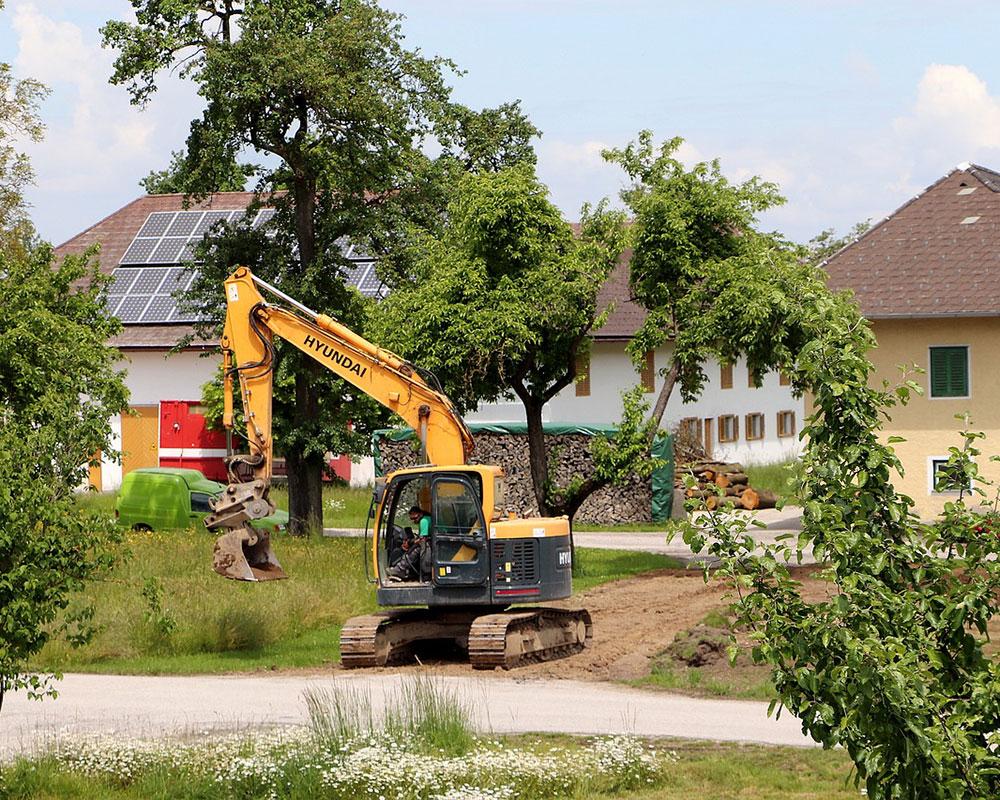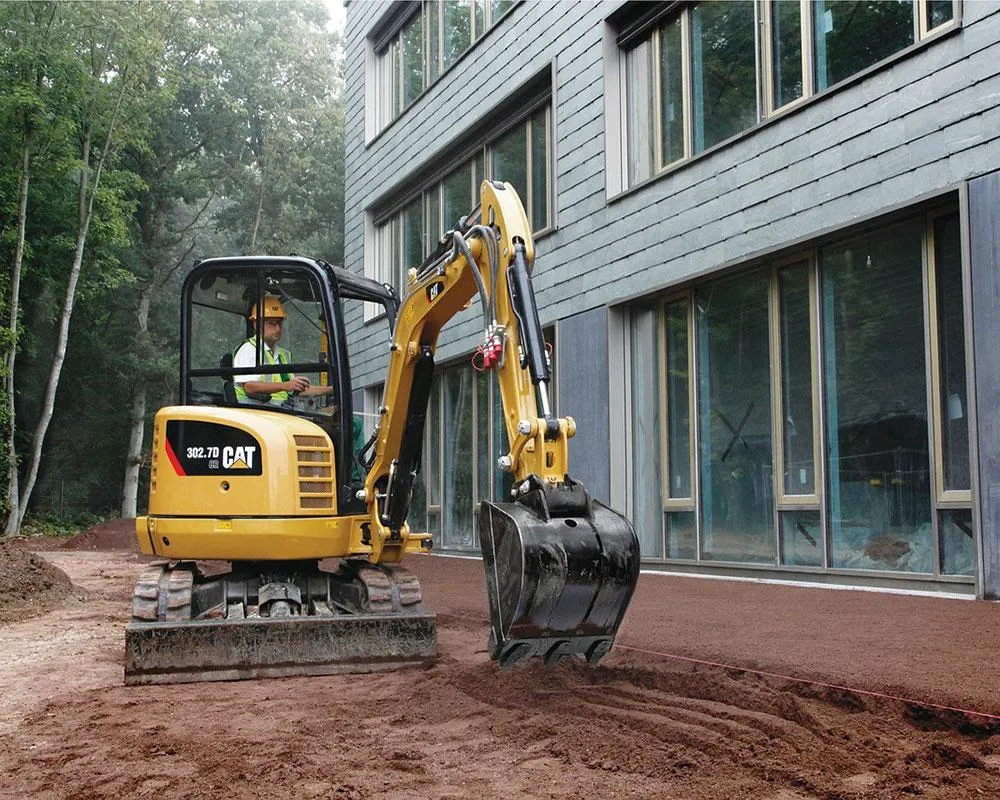
Serving Michigan counties: Macomb, St Clair, Wayne, Oakland, Genesee, and Tuscola Counties
Residential Excavation Company Near Macomb County, Michigan
Superior Surfaces LLC is Committed to superior quality and results!

AVOID COSTLY MISTAKES:
Do NOT hire an excavating contractor without first reading our free guide:
The ULTIMATE Excavation & Septic "Success Guide."

Residential Excavation Company Near Macomb County, Michigan: Your Complete Guide
Planning a new home build, addition, garage, driveway, septic system, or drainage fix begins with excavation. This stage sets the foundation for everything that comes next. Done right, it prevents costly problems and delays. Suppose you want clear answers before you break ground. In that case, this guide explains what a Residential Excavation Company Near Macomb County does, the benefits of hiring locally, and a step-by-step hiring process you can trust.
How Can We Help?


What a Residential Excavation Company Near Macomb County Actually Does
Excavation is more than digging a hole. A qualified residential team reviews plans, surveys the site, and coordinates with your builder or designer. They cut the building pad and dig for foundations, footings, crawlspaces, and basements. They trench for water, sewer, storm, electrical, and gas. They shape swales, install culverts and French drains, and manage dewatering when groundwater or rain creates standing water. They handle soil management, import or haul off materials, and leave a safe, clean site ready for the next contractor.
The Benefits of Hiring Local Experts in Michigan Conditions
Macomb County soils vary from clay to silt with pockets of sand, and weather swings from freeze-thaw to heavy summer storms. Local experience matters. A nearby team understands frost depth, soil bearing capacity, typical utility depths, and county standards. That knowledge shows up in safer trenches, tighter compaction, and drainage that protects foundations after storms. You also gain faster mobilization, easier communication, and crews who know local inspectors and suppliers, which keeps projects moving.
Why Hire a Residential Excavation Company Near Macomb County Instead of DIY
Safety is the first reason. Trench collapses, overhead hazards, and buried utilities can turn dangerous quickly. Professionals carry training, insurance, and the right equipment to manage risk. Quality is the second reason. Accurate grades and proper compaction protect your home, driveway, and yard for decades. Compliance is the fourth reason. Pros call MISS DIG 811, follow permit conditions, and document work for inspections. The end result is fewer surprises, better protection for your budget, and peace of mind.
Core Services You Can Expect
Site clearing, tree and stump removal, and topsoil management
Cut and fill to establish a level, well-drained building pad
Foundation, footing, crawlspace, and basement excavation
Utility trenching for water, sewer, storm, electric, and gas
Driveway and approach construction with a proper base and compaction
Drainage improvements, including French drains, swales, and culverts
Backfill, rough grade, and finish grade to direct runoff away from structures
Pricing Factors That Shape Your Estimate
Transparent pricing starts with a detailed scope. Total cost is driven by access, soil type, groundwater management, haul off or import of materials, total cubic yards, and time on site. When you review an estimate, look for line items that spell out staking, dig depths, trench lengths, base materials, fabric, culverts, compaction, and restoration. Detailed scopes reduce change orders and prevent misunderstandings later.
See Our Excavation and Septic

✔️ Commercial Excavation
✔️ Residential Excavation
✔️ Basement Excavation
✔️ Demolition
✔️ Large Pond Construction
✔️ Small Pond Construction
✔️ Dozer Work
✔️ Forestry Mulching
✔️ Grading, Lot Clearing
✔️ Retaining Walls
✔️ Concrete Flatwork - Driveways, Sidewalk, Foundations
✔️ Foundation Repairs
✔️ Full Site Preparation
✔️ Foundation Repairs
Quality Services Launched FAST!

✔️Septic Install and Repair
✔️ Septic Inspections
✔️ Septic Installs Traditional Systems
✔️ Septic Tanks - Plastic/Poly
✔️ Septic Tanks - Concrete
✔️ Drain Field Replacement
✔️ Drainage Systems
✔️ Aerobic Treatment Systems
✔️ French Drains
✔️ Trenching
What Are You Waiting For?
The Process for Hiring a Residential Excavation Company Near Macomb County
Define the project. Gather surveys, plans, or a simple sketch with rough dimensions and utility locations.
Shortlist local pros. Search for a Residential Excavation Company Near Macomb County with recent work similar to yours.
Request site visits. Walk the property. Ask how water, access, staging, and neighbor impacts will be handled.
Compare written scopes. Apples to apples beats the lowest number. Confirm yardage, materials, and responsibilities.
Check compliance. Verify insurance, licenses, and that utility locates will be called before digging.
Align schedules. Excavation sits on the critical path. Confirm start date, duration, and any holds for inspections.
Approve and mobilize. Sign the proposal, place the deposit, and confirm your single point of contact.
Typical Timeline and Sequence
Small residential digs often take one to five days of active work once permits are ready and utilities are marked. A common sequence is mobilization, clearing, rough cut, utility trenching, base and compaction, foundation dig, required inspections, backfill, and final grading. The weather can shift the order. A reliable contractor communicates changes and uses pumps or diversion to manage water safely.
How Quality Is Measured During and After Excavation
Quality shows up in grade accuracy, compaction density, clean trench walls, and drainage that performs after the first heavy rain. Expect spot checks with a laser level and proof rolling for driveways. Ask for photos before backfill. Request that spoils and topsoil are separated so your future landscaping is faster and more affordable.
Preparing Your Property For a Smooth Start
Mark private utilities like irrigation or a pet fence. Move vehicles, trailers, and stored materials out of work zones. Keep kids and pets inside while the equipment is operating. Identify any trees or landscaping you want preserved. Share long-term plans so grades and access serve future patios, sheds, or additions.
Hours: Monday-Saturday 6:00am-6:00pm
Extended hours by appointment only.
Address: 23450 29 Mile Rd, Ray, MI 48096, USA
All rights reserved | Client Support Area